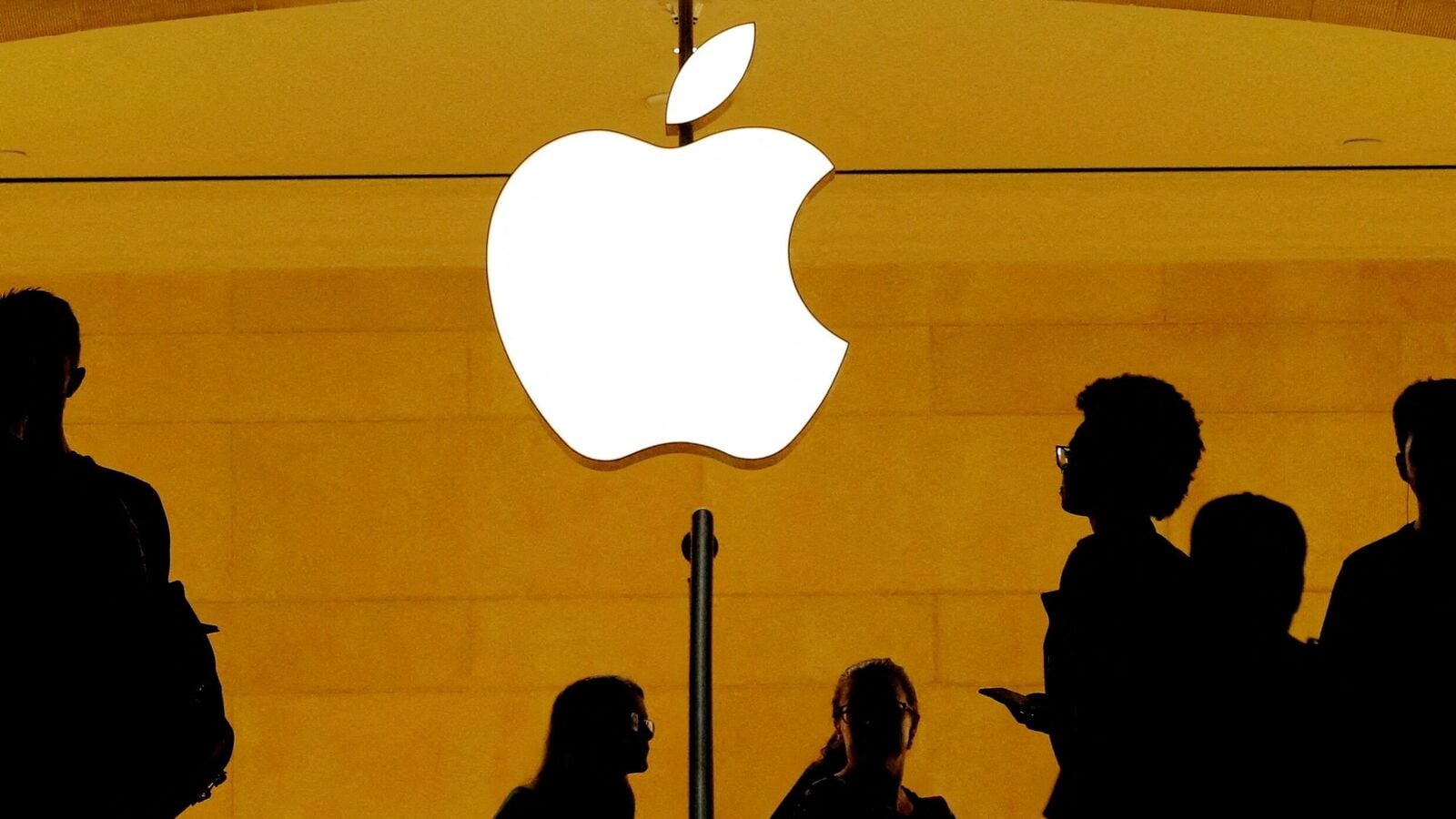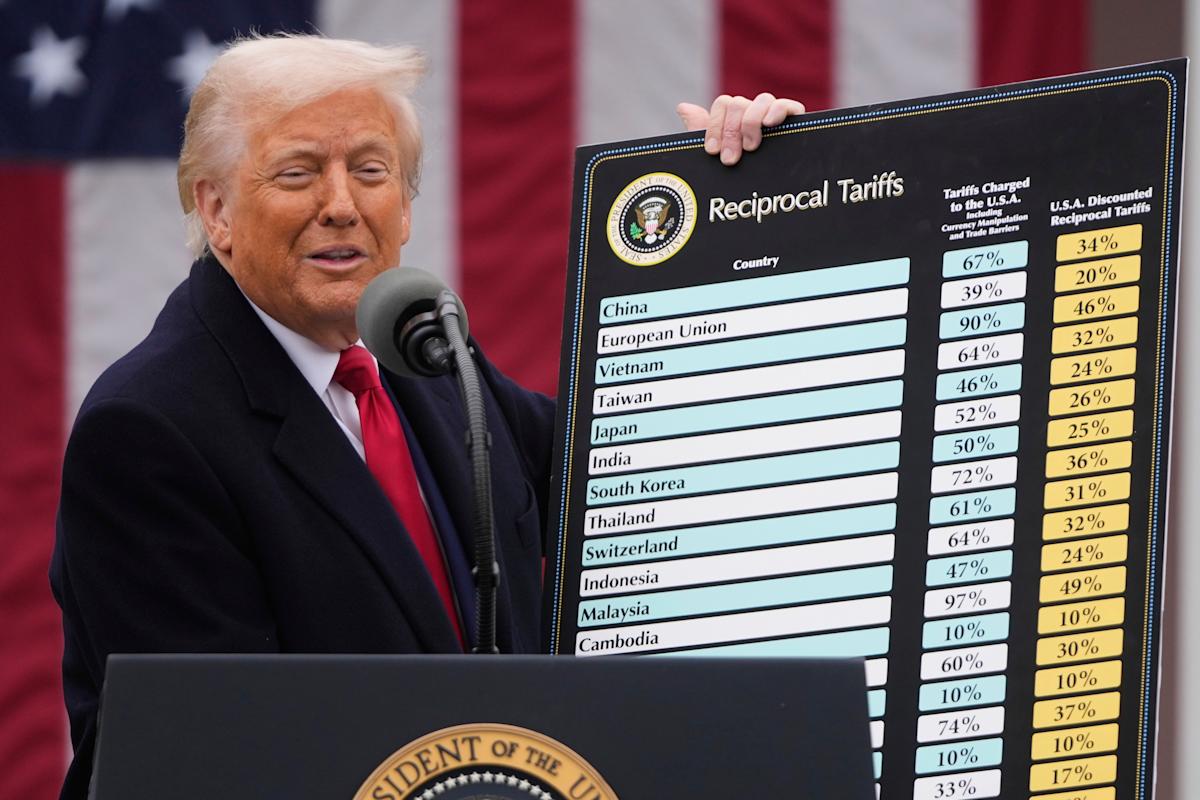“Monday’s trading session is set to be a pivotal moment for investors as the US government announces plans for ‘special tariffs’ on smartphone imports – a move that’s likely to send shockwaves through the tech industry and send Apple shares soaring. The announcement has sparked widespread speculation among market analysts, with many predicting a significant impact on the global smartphone market and a corresponding effect on tech heavyweights like Apple. As the US trade policies continue to take center stage, one thing is clear: the next 24 hours will be a defining moment for Apple’s stock price and the broader tech sector.”
Market Analysis and Trends
US-China Trade War Escalation

The ongoing US-China trade war has taken a significant turn, with China raising duties on US goods to 125% from 84%. This move intensifies the trade conflict, which has been weighing on investor sentiment. The US has also imposed tariffs on Chinese imports, with some cases reaching 145%.
In a major escalation, China raised its duties on US goods to 125% in response to President Trump’s tariffs. This move has further intensified the trade war, which has been roiling US stocks. The conflict has weighed on investor sentiment, despite Trump’s 90-day pause on steep Liberation Day tariffs and the EU’s matching pause on retaliatory duties.
- China’s countermeasures came into effect on Saturday, further intensifying the trade war.
- The US has imposed tariffs on Chinese imports, with some cases reaching 145%.
- Trump’s 90-day pause on steep Liberation Day tariffs has not mitigated the impact of the trade war.
- The EU’s matching pause on retaliatory duties has also not alleviated the situation.
- 2018: The US imposed tariffs on Chinese goods, leading to China’s retaliatory measures.
- 2019: The US and China engaged in a high-stakes trade war, with both countries imposing tariffs on each other’s goods.
- 2020: The US and China signed a Phase One trade agreement, which included commitments on trade and intellectual property.
- 2025: The US-China trade tensions have escalated, with China raising duties on US goods to 125%.
- The trade war is affecting investor sentiment, with many investors opting for safe-haven assets.
- The uncertainty surrounding the trade war is impacting economic growth, trade, and investment.
- Investors are increasingly concerned about the impact of the conflict on global markets.
Historical Context: US-China Trade Tensions and Key Milestones

The US-China trade tensions have been building for years, with various milestones marking the escalation of the conflict. In 2018, the US imposed tariffs on Chinese goods, leading to China’s retaliatory measures. The conflict has intensified since then, with both countries imposing tariffs on each other’s goods.
Implications for Global Markets: How the Escalation Affects Investors
The escalation of the US-China trade war has significant implications for global markets. Investors are increasingly concerned about the impact of the conflict on economic growth, trade, and investment. The uncertainty surrounding the trade war is affecting investor sentiment, with many investors opting for safe-haven assets.
US Market Reaction and Expectations
US Stock Market Reaction
The US stock market has been reacting to the escalation of the US-China trade war. Apple Inc. shares are poised to be in focus on Monday, April 14, after US Commerce Secretary Howard Lutnick clarified that the nation will soon impose a set of “special tariffs” on all smartphone and computer imports into the western nation.
According to Nasdaq Composite data, Apple Inc. shares closed 4.06 per cent higher at $198.15 after Friday’s US market session, compared to $190.42 at the previous stock market session. The iPhone maker’s share price hit its 52-week high at $260.10, while the 52-week low level was at $164.08, according to Marketwatch data.
- Apple Inc. shares closed 4.06 per cent higher at $198.15 after Friday’s US market session.
- The iPhone maker’s share price hit its 52-week high at $260.10, while the 52-week low level was at $164.08.
- Apple shares have given stock market investors more than 180 per cent returns on their investment in the last five years and 14.74 per cent in the last one-year period.
- Investors are expecting a significant reaction from the US stock market in response to the escalation of the US-China trade war.
- The uncertainty surrounding the trade war is affecting investor sentiment, with many investors opting for safe-haven assets.
- Investors are increasingly concerned about the impact of the conflict on global markets.
US Market Expectations
Investors are expecting a significant reaction from the US stock market in response to the escalation of the US-China trade war. The uncertainty surrounding the trade war is affecting investor sentiment, with many investors opting for safe-haven assets.
Market Analysis and Trends
US Market Reaction and Expectations
The US market reaction and expectations are closely tied to the escalation of the US-China trade war. The uncertainty surrounding the trade war is affecting investor sentiment, with many investors opting for safe-haven assets.
Investors are expecting a significant reaction from the US stock market in response to the escalation of the US-China trade war. The uncertainty surrounding the trade war is affecting investor sentiment, with many investors opting for safe-haven assets.
- Investors are expecting a significant reaction from the US stock market in response to the escalation of the US-China trade war.
- The uncertainty surrounding the trade war is affecting investor sentiment, with many investors opting for safe-haven assets.
- Investors are increasingly concerned about the impact of the conflict on global markets.
US Stock Market Reaction
Apple Inc. Shares
Apple Inc. shares are poised to be in focus on Monday, April 14, after US Commerce Secretary Howard Lutnick clarified that the nation will soon impose a set of “special tariffs” on all smartphone and computer imports into the western nation.
According to Nasdaq Composite data, Apple Inc. shares closed 4.06 per cent higher at $198.15 after Friday’s US market session, compared to $190.42 at the previous stock market session. The iPhone maker’s share price hit its 52-week high at $260.10, while the 52-week low level was at $164.08, according to Marketwatch data.
- Apple Inc. shares closed 4.06 per cent higher at $198.15 after Friday’s US market session.
- The iPhone maker’s share price hit its 52-week high at $260.10, while the 52-week low level was at $164.08.
- Apple shares have given stock market investors more than 180 per cent returns on their investment in the last five years and 14.74 per cent in the last one-year period.
Apple Shares Poised to be in Focus on Monday Amid US Tariff Uncertainty
US Stock Market: Apple Inc. shares are poised to be in focus on Monday, April 14, after U.S. Commerce Secretary Howard Lutnick clarified that the nation will soon impose a set of “special tariffs” on all smartphone and computer imports into the western nation.
According to an interview with ABC News on Sunday, April 13, Lutnick stated that products like smartphones, laptops, hard drives, computer processors, memory chips, and other electrical components will be included in a “special focus type of tariff.” The report also mentions that the US government will announce this new tariff in the upcoming one to two-month period.
This move comes after US President Donald Trump announced on Friday, April 11, that smartphone and laptop imports into the Western nation will not be subject to the high “reciprocal tariffs” announced earlier this month on April 2, 2025. This move provided a respite to US market investors, who expected Trump’s announcement to de-escalate the ongoing trade war between the United States and other world nations.
This move was also considered to be a break for companies like Apple, who manufacture their products in nations like China and Vietnam. US markets are set to re-open on Monday, April 14, where investors will trade, keeping this recent development in focus.
NASDAQ Composite Data: How the Recent Development Affects Stock Performance
Apple Inc. shares closed 4.06 per cent higher at $198.15 after Friday’s US market session, compared to $190.42 at the previous stock market session, Nasdaq Composite data shows.
The iPhone maker’s share price hit its 52-week high at $260.10, while the 52-week low level was at $164.08, according to Marketwatch data. Apple shares have given stock market investors more than 180 per cent returns on their investment in the last five years and 14.74 per cent in the last one-year period.
However, the stock has lost more than 18 per cent on a year-to-date (YTD) basis in 2025. After the stock market crash on Friday, April 4, Apple’s stock has gained since April 8. In the last five Wall Street sessions, the shares have generated 12.30 per cent returns for investors.
As of Friday’s US market close, Apple’s market capitalisation (M-Cap) was at $2.976 trillion.
Investor Sentiment: How the Trade War Affects Market Confidence
The trade conflict has weighed on investor sentiment, even as Trump instituted a 90-day pause on steep Liberation Day tariffs and the EU matched a US pause on retaliatory duties.
Trump and his top advisers sowed confusion this weekend, when it was revealed that the US had excluded smartphones, computers, and other consumer electronics from tariffs. Then on Sunday, US Commerce Secretary Howard Lutnick said that those electronics would soon be covered under levies that he said would be separate from those imposed on specific countries.
Trump himself added to the muddied message when he claimed in a lengthy Sunday post on social media that there was “no exception” for those products.
“We are taking a look at Semiconductors and the WHOLE ELECTRONICS SUPPLY CHAIN in the upcoming National Security Tariff Investigations,” he said.
Tariff Uncertainty and Its Impact on Apple Shares
The baseline 10% tariff that went into effect on April 5 remains in place for all affected imports into the U.S. In terms of the United States–Mexico–Canada Agreement (USMCA), compliant goods are imported tariff-free when traded among the three countries, while non-compliant goods are tariffed at 25% — except for energy and potash, which are tariffed at 10%.
Impact on the Electronics Industry: How Tariffs Affect Consumer Electronics Manufacturers
The electronics industry has been significantly impacted by the ongoing trade war. The tariffs imposed on consumer electronics have led to increased costs for manufacturers, which are then passed on to consumers.
This has resulted in a decline in sales for many electronics companies, as consumers are hesitant to purchase products with higher prices. The tariffs have also led to a shortage of certain components, such as memory chips, which has further exacerbated the problem.
Apple, being one of the largest electronics companies in the world, has been particularly affected by the tariffs. The company’s supply chain is heavily reliant on components from countries like China and Vietnam, which are subject to the tariffs.
The uncertainty surrounding the tariffs has led to a decline in investor sentiment, with many investors hesitant to invest in companies that are heavily reliant on imports.
The impact of the tariffs on Apple shares has been significant, with the stock price declining by over 18% on a year-to-date basis in 2025.
Analysis of the 10% Tariff that Went into Effect on April 5
The 10% tariff that went into effect on April 5 has had a significant impact on the electronics industry. The tariff has led to increased costs for manufacturers, which are then passed on to consumers.
This has resulted in a decline in sales for many electronics companies, as consumers are hesitant to purchase products with higher prices.
The tariff has also led to a shortage of certain components, such as memory chips, which has further exacerbated the problem.
Apple, being one of the largest electronics companies in the world, has been particularly affected by the tariff. The company’s supply chain is heavily reliant on components from countries like China and Vietnam, which are subject to the tariff.
The uncertainty surrounding the tariff has led to a decline in investor sentiment, with many investors hesitant to invest in companies that are heavily reliant on imports.
How the Baseline Tariff Affects Apple’s Business and Revenue
The baseline tariff has had a significant impact on Apple’s business and revenue. The company’s supply chain is heavily reliant on components from countries like China and Vietnam, which are subject to the tariff.
The tariff has led to increased costs for Apple, which are then passed on to consumers. This has resulted in a decline in sales for the company, as consumers are hesitant to purchase products with higher prices.
The tariff has also led to a shortage of certain components, such as memory chips, which has further exacerbated the problem.
Apple has been working to mitigate the impact of the tariff by diversifying its supply chain and reducing its reliance on imports. However, the uncertainty surrounding the tariff has led to a decline in investor sentiment, with many investors hesitant to invest in companies that are heavily reliant on imports.
Conclusion
As the US announces its upcoming ‘special tariffs’ for smartphone imports, Apple shares are poised to be in the spotlight on Monday. The news has sparked concerns among investors, with many speculating about the potential impact on Apple’s profitability and the overall smartphone market. The article highlights the complexities of the trade dispute, with Apple facing increased competition from Chinese manufacturers and the risk of higher production costs due to tariffs. The significance of this development lies in its potential to reshape the global smartphone landscape, with companies like Apple and Samsung facing the brunt of the tariffs.
The implications of this news are far-reaching, with Apple’s stock price and market share under scrutiny. The company’s ability to adapt to the changing trade dynamics will be key to its long-term success. With the US imposing tariffs on certain components used in smartphone manufacturing, Apple may be forced to re-evaluate its supply chain and pricing strategies. Forward-looking, investors will be watching closely for any signs of resilience from the tech giant. Ultimately, the outcome of this trade dispute will have a lasting impact on the global smartphone market, redefining the rules of competition and forcing companies to innovate and adapt.
As the stakes are raised, one thing is clear: the stakes are higher than ever for Apple and the smartphone industry as a whole. As the US tariffs take effect, the real question is: can Apple’s innovative spirit and commitment to quality remain intact amidst the chaos? Only time will tell if the tech giant can navigate these treacherous waters and emerge stronger, but one thing is certain – the smartphone landscape will never be the same.
